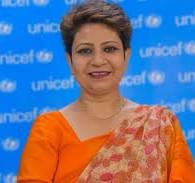By Ndey Sowe
In a landmark move aimed at mainstreaming child rights into higher education and policy dialogue, UNICEF and the University of The Gambia (UTG) signed a formal partnership on Thursday, June 19, 2025, to establish a dedicated Child Rights Centre at the UTG.
The agreement was sealed during a high-level technical working session held at the National Nutrition Agency (NaNA) conference hall. The two-day meeting brought together key stakeholders from academia, government, and international development agencies to design a detailed roadmap for the new centre, which will serve as a national hub for research, education, and advocacy on children’s rights.
Ms. Nafisa Binte Shafique, UNICEF’s Country Representative in The Gambia, described the initiative as a “significant step” toward building a more equitable society by anchoring child rights in academic discourse and public policy.
“This Memorandum of Understanding formalizes our collaboration to establish a Child Rights Centre at the University – a national platform for evidence generation, academic excellence, and the empowerment of students and faculty to become informed advocates for child rights,” she said.
Shafique thanked the Ministry of Gender, Children and Social Welfare and the University of The Gambia for their leadership and vision, and extended gratitude to UNICEF Greece for their technical support in developing the initiative.
The planned Child Rights Centre will focus on three key pillars: integrating child rights into university curricula, conducting interdisciplinary research on children’s issues in The Gambia, and serving as a resource hub to inform national policy and community engagement.
The initiative comes in the wake of the latest Concluding Observations of the United Nations Committee on the Rights of the Child, which called for enhanced education on child rights at all levels of learning. UNICEF and UTG say the new centre directly answers that call by embedding rights-based learning into academic programs and field practice.
“This initiative could not be more timely,” Shafique emphasized. “The commitments we formalize today respond directly to that call – not merely in principle, but in practice.”
Professor Kayode Adekeye, Deputy Vice-Chancellor of UTG, welcomed the partnership, noting the transformative potential of the Centre to bridge academic knowledge and social action.

“We are all well-equipped and we have added to our knowledge on child rights,” Adekeye said. “It is the belief that the knowledge you have gained will translate into our actions.”
The working session also focused on operationalizing the Centre — defining its structure, governance, staffing, funding requirements, and collaboration opportunities with UNICEF and other regional or international partners. A formal inauguration ceremony is expected to follow in the coming months, to be officiated jointly by UTG and UNICEF.
If successful, the Child Rights Centre will be the first of its kind in The Gambia — embedding children’s rights into the heart of academic inquiry and building a generation of leaders and policymakers committed to upholding the dignity and welfare of every child.




















